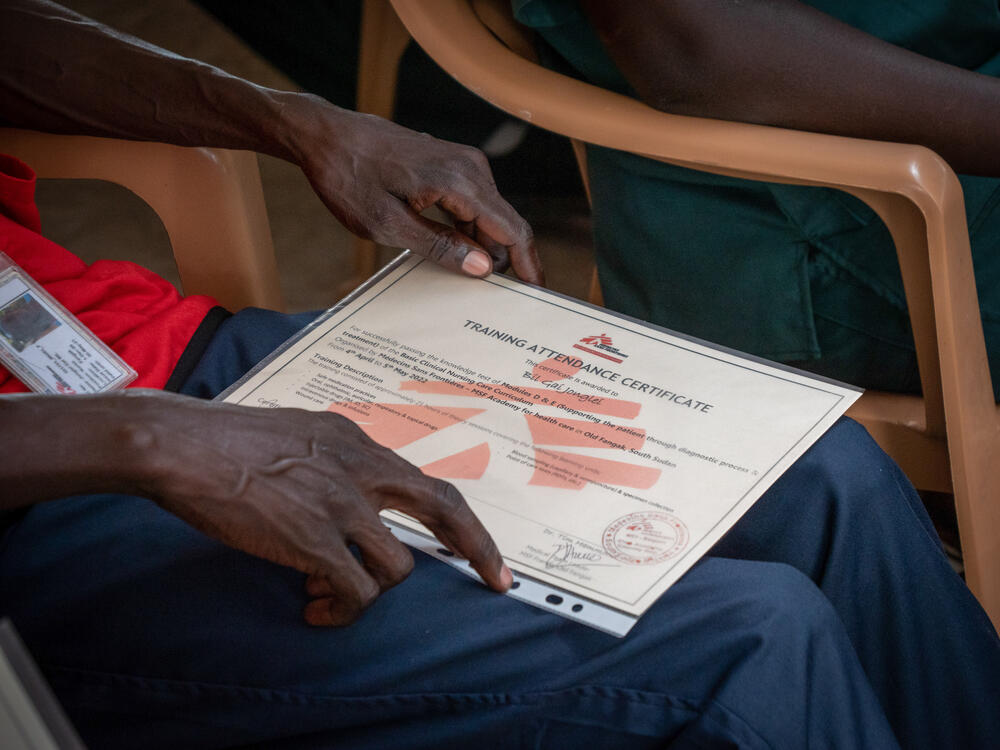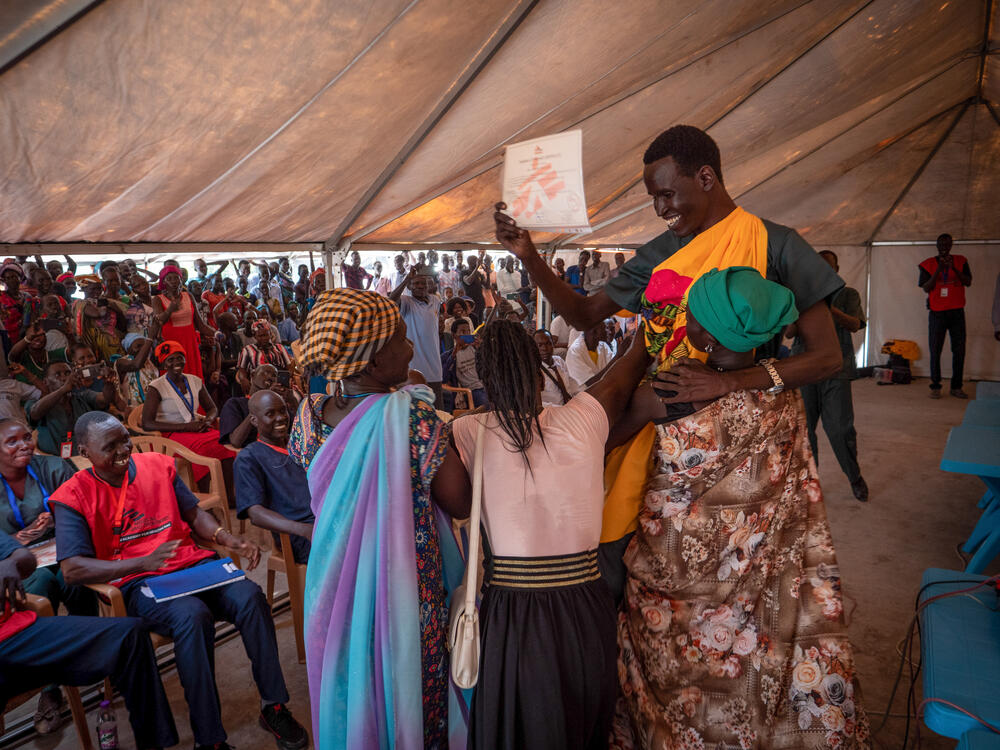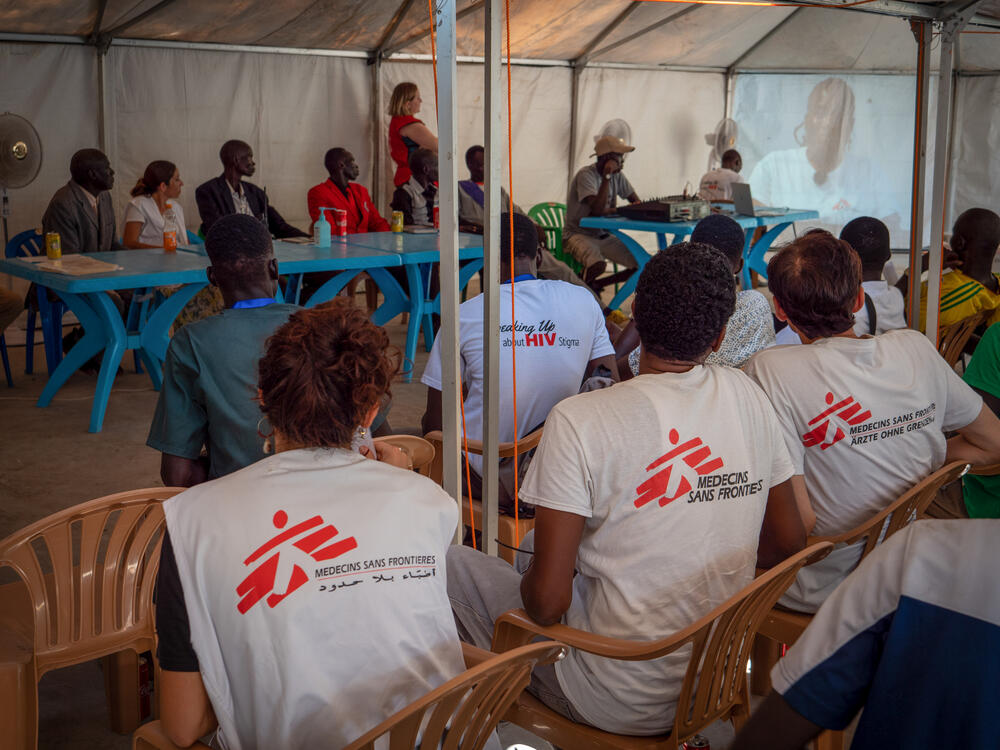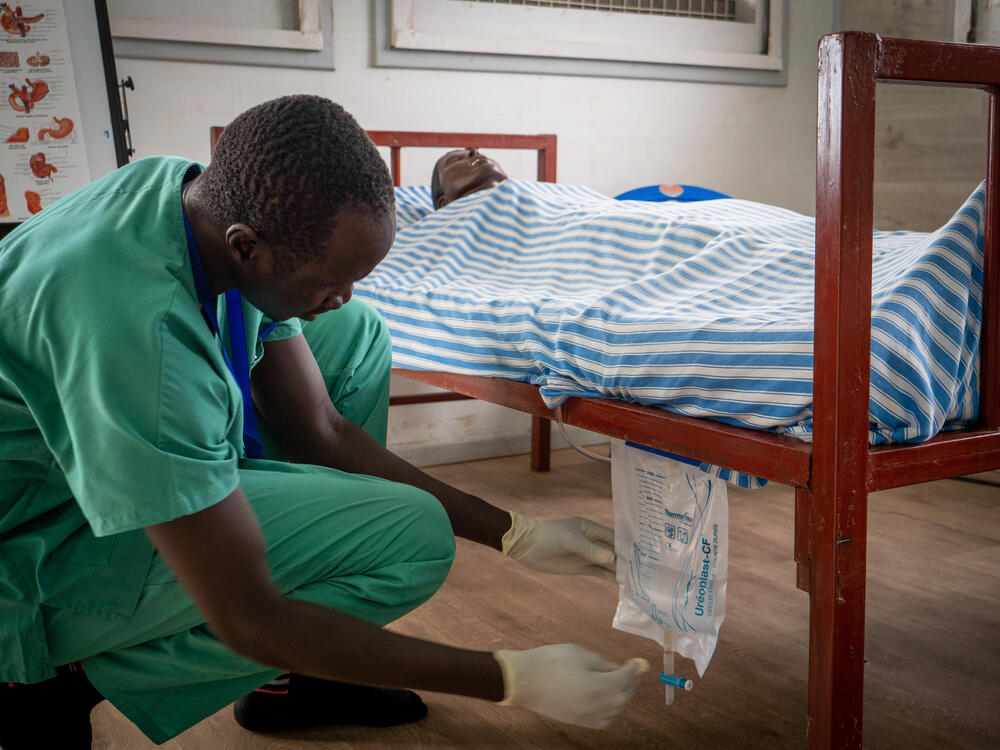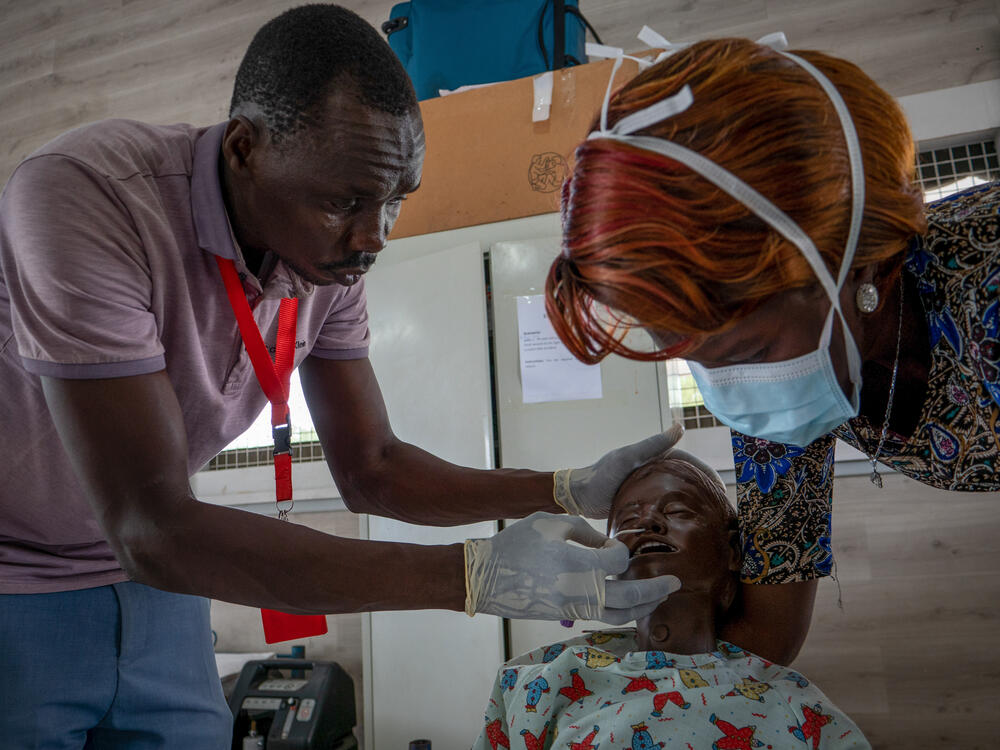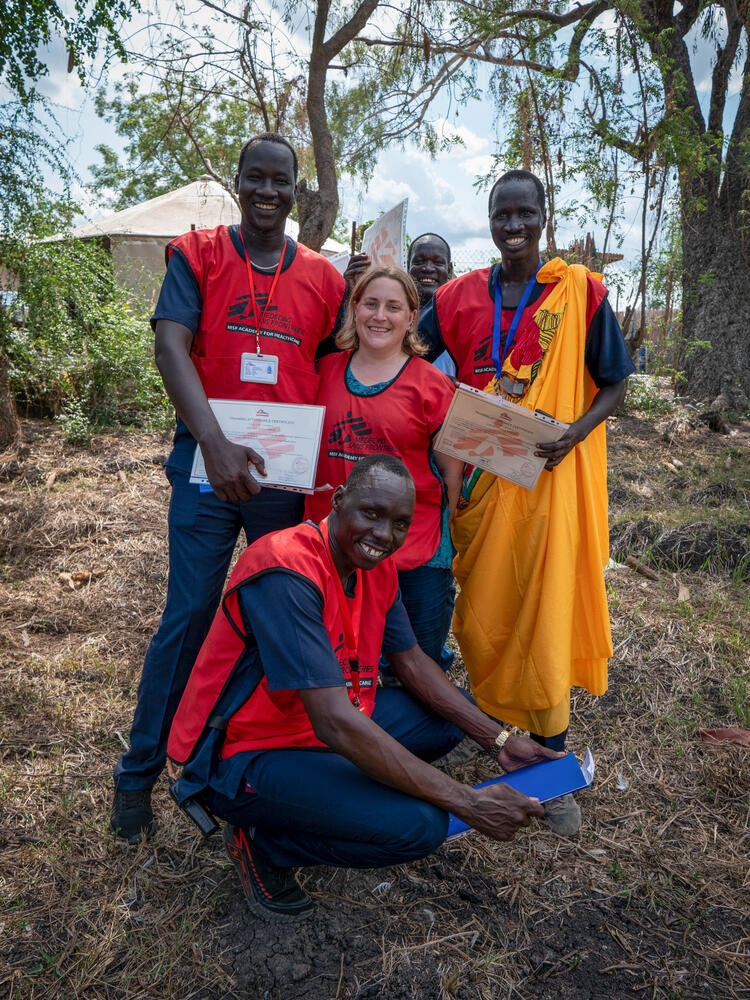South Sudan: Graduation day at MSF’s ‘college within a hospital’
14 December 2022
Around the world, teams from Médecins Sans Frontières / Doctors Without Borders (MSF) work to provide expert medical care in humanitarian emergencies.
However, in many places, we also support local healthcare staff with professional development and training – an investment that means life-saving care will continue, even after we leave.
Wilson Thiongo shares his experience of teaching nurses with the MSF Academy for Healthcare, as well as some heartwarming photos of a graduation day in remote South Sudan.
I first heard about MSF back in 2011 from my colleagues, just after we were done with our internship. I later did some research: on what it does as well as how it works.
I saw the future of my career and started looking out for opportunities to join the organisation.
Being passionate about my career as a nurse and wanting to use my nursing skills for the benefit of everyone led me to humanitarian work.
WILSON THIONGO MSF ACADEMY NURSE
In 2019, I was fortunate enough to get a job with the MSF Academy for Healthcare. I was in charge of implementing the Basic Clinical Nursing Care curriculum for nurses and midwives.
Since then, I have worked in many locations across South Sudan, including Juba, Old Fangak, Bentiu and Malakal.
MSF works in remote areas with vulnerable and marginalised communities – places that often have limited qualified healthcare staff available. So, we provide on-the-job training for staff so that they can carry out medical interventions safely.
The MSF Academy aims to professionalise and formalise this training. We work with tutors who are qualified and have experience in mentoring.
The academy is like a mobile college that visits a hospital project. We run classrooms as well as bedside teaching, using a pool of medical staff who work as tutors. I supervise and mentor this team.
Since joining the MSF Academy, I’ve seen the impact the training has made on our healthcare staff and the patients we care for by improving the quality of care we provide.
Despite working within a hospital environment, we run the MSF Academy just like any other educational institution.
On a normal day, I go to the classrooms to make sure that tutors are ready, go through the session plans and ensure that classes are running.
I also visit the hospitals to see how the medical tutors are integrating with the rest of the team while supporting the clinical mentors in their day-to-day activities in the wards.
One of the things that I’m most happy with is seeing how the MSF Academy helps improve things in the healthcare facilities where we work, and, at the same time, empowers the people we train.
My most proud moment was in early June this year when the first group of students graduated in Old Fangak – a remote town in rural South Sudan where MSF runs a vital hospital.
That’s when I realised the magnitude and impact of the training we have been offering. It was even more fulfilling seeing the community join in and celebrate and support the graduates.
As a nurse educator, I’m now more motivated to transfer and share my knowledge and skills with upcoming nurses – all so that they are able to give better care to their patients and help save more lives.
